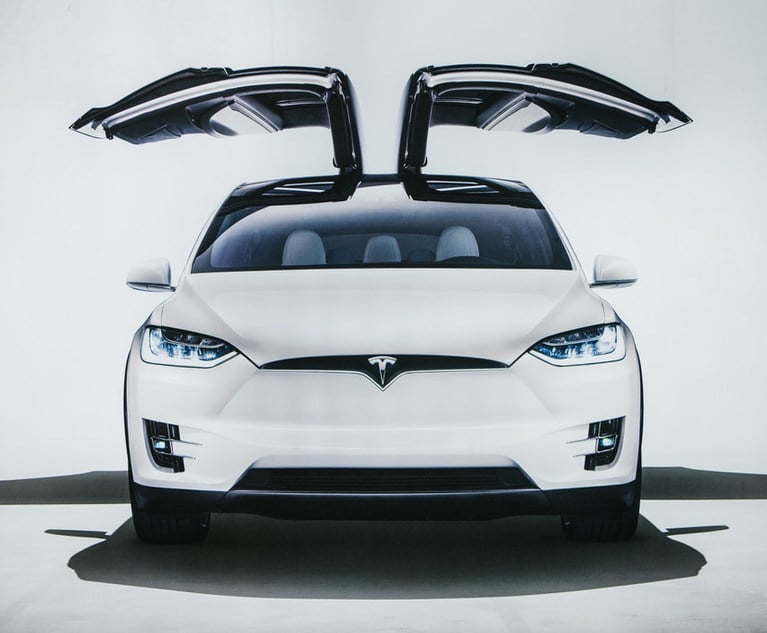 As more semi-autonomous vehicles gain traction on U.S. roads, the risk of an accident and injury also seems to rise. Attorneys on both sides of Harcourt et al. v. Tesla, Inc. rebuke liability. (Credit: Franz12/Shutterstock.com)
As more semi-autonomous vehicles gain traction on U.S. roads, the risk of an accident and injury also seems to rise. Attorneys on both sides of Harcourt et al. v. Tesla, Inc. rebuke liability. (Credit: Franz12/Shutterstock.com)
Mallory Harcourt parked her new Tesla Model X in her driveway on Dec. 27, 2018. She was heavily pregnant (eight months) and planned to unpack groceries, change the diaper on her toddler and then go back to the SUV. Harcourt shut off the Tesla, but the "Falcon wing doors" remained open as she and her toddler headed into the garage and up the stairs. The young child ran back to the Model X, climbed into the driver's side and managed to accelerate the vehicle into Harcourt, lifting and pinning her against the garage wall.
Recommended For You
Want to continue reading?
Become a Free PropertyCasualty360 Digital Reader
Your access to unlimited PropertyCasualty360 content isn’t changing.
Once you are an ALM digital member, you’ll receive:
- Breaking insurance news and analysis, on-site and via our newsletters and custom alerts
- Weekly Insurance Speak podcast featuring exclusive interviews with industry leaders
- Educational webcasts, white papers, and ebooks from industry thought leaders
- Critical converage of the employee benefits and financial advisory markets on our other ALM sites, BenefitsPRO and ThinkAdvisor
Already have an account? Sign In Now
© Touchpoint Markets, All Rights Reserved. Request academic re-use from www.copyright.com. All other uses, submit a request to [email protected]. For more inforrmation visit Asset & Logo Licensing.







